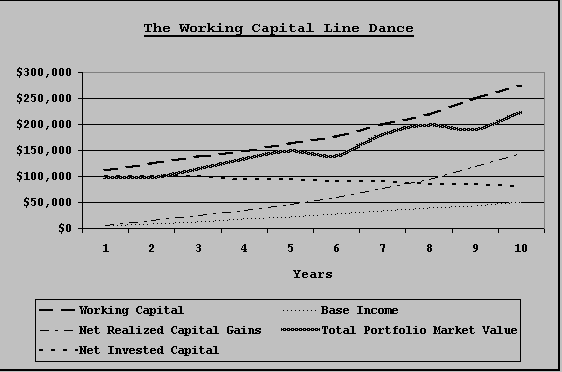10 Ways to protect your portfolio from the eurozone crisis Yahoo Finance UK
Post on: 19 Апрель, 2015 No Comment

Whether it’s Spanish bond yields hitting 6%, Greece’s creditors taking a serious haircut on their debts, France being downgraded — the eurozone crisis has hogged the financial headlines for the past year. While it might be doom and gloom over on the continent, there are ways to protect your portfolio to minimise the risk of eurozone contagion. Here we outline 10 ways to shelter your money from the sovereign debt crisis.
1. Spread your portfolio Diversification is key — the eggs in basket motto has never been truer than over the past year. Spread your portfolio across a variety of asset classes — including equities, property, bonds and commodities — and developed and emerging markets to ensure true diversity.
Consider adopting a core satellite strategy, where the core is the more solid, passive equity investments, and the satellite is the slightly racier actively-managed investments.
2. Venture further afield Consider allocating away from Europe and developed western markets most hit by the effects of the euro crisis. Focus on nations with little, or no sovereign risk. Jassim Alseddiqi, chief executive of Abu Dhabi Capital Management, says the expanding gulf region — Saudi Arabia, Kuwait, Bahrain, Qatar, UAE and Oman — offers protection from the economic downsides in Europe.
There are no sovereign debt issues, no bubbles, and there is vast spending and population growth here, he says. Meanwhile, growth in emerging markets is slowing, but is still much stronger than in Europe, and nations such as China don’t have the same levels of debt that exist in the West.
3. Have the stomach for the fight However, don’t automatically eliminate all exposure to Europe in light of the turmoil, as Europe has traditionally been a key part of many portfolios. There are opportunities for those with a strong stomach, says Stephen Barber, who advises Selftrade on economics and markets. But also for those who take a longer-term view, value can be found in quality companies from core European economies, especially Germany. Remember that German exporters have benefitted from a weak euro. 4. Consider retail corporate bonds Think equity returns are too volatile and those from government bonds not bothering with? If you can’t handle the 30% plus yield on a risky Greek bond and don’t want a dull low-yielding UK gilt, consider a retail corporate bond. There are several inflation-linked and fixed-rate bonds available to retail investors from good quality companies. As well as providing inflation-beating returns, they are a good way to diversify a portfolio. See the London Stock Exchange’s Order Book for Retail Bonds for more information on individual bonds, or consider buying a strategic bond fund, which has the flexibility to invest across a range of regions and sectors.
5. ETFs Exchange traded funds (ETFs) are useful vehicles to access large global markets as well as more arcane sectors to diversify away from the euro-area. They are large and liquid funds that allow intra-day trading, so allow investors to react to short-term news from the eurozone. Barber comments: Index tracking ETFs are perhaps the easiest method of buying exposure. That diversification can include countries, industrial sectors and commodities. They are also much cheaper — the average total expense ratio of an ETF stands at 0.48%, compared to the average TER of an open-ended fund at 1.52%.
6. Derivatives Sophisticated investors could consider hedging potential market slumps with derivatives for a modest sum, which essentially act as insurance against the market going against your favour. However, they are complex and can be quite opaque, so seek advice before buying one.
7. Favour dividend-paying stocks At a time when the markets are flatlining and growth is scant, investors are increasingly looking to income to plug the gap in a portfolio. In falling markets, high dividend stocks such as Shell, BP, AstraZeneca and British American Tobacco tend to outperform other growth assets. Investors must re-evaluate their approach if they have traditionally focused on capital growth, says Fidelity’s global chief investment officer Dominic Rossi.
In a low-yielding, low growth world, investors should favour dividend paying stocks and strategies, with income likely to account for a much more significant part of equity total returns, going forward. For the last 20 years, investors have bought equity markets for capital growth, but now is the time to buy equities for income. 8. Look to resilient companies In terms of equity exposure, look to large, solid companies with sound balance sheets and resilient earnings to avoid being sucked in to the ongoing macroeconomic turmoil. Iain Stewart, an investment manager at BNY Mellon Asset Management, says some of his favoured stocks are in the healthcare, telecoms and non-cyclical consumer sectors. He is also looking at higher-yielding international equities, technology, and gold-focused mining stocks to find growth.

9. Beware exposed banks Remember that lots of other UK banks have exposure to the problems in the eurozone, most notably foreign banks such as Santander and ING Direct. Last year, Banco Santander (Santander’s parent company) posted a 98% drop in profits, due to its liabilities in the beleaguered Spanish property market.
That said, a bank wishing to operate savings products in the UK must be regulated by the Financial Services Authority and covered by the Financial Services Compensation Scheme, which covers up to £85,000 of cash savings and £50,000 of investments per financial institution.
These limits cover a banking group, so if you have savings with Lloyds TSB and Halifax (both part of Lloyds Banking Group), you will be entitled to compensation of £85,000 spread across both.
10. Ride out the storm Finally, if a stock you’ve invested in has massively crashed or a fund has suffered rock bottom performance, don’t be tempted just to sell on this basis. It’s easy to be worried with so much economic gloom reported daily, but selling when things are bad means you risk selling at the bottom of the market, and missing out on the subsequent upside. Make a rational decision if you’re considering selling out of an asset, and bear in mind that the stock could shoot up in value as quickly as it fell.
This article was written for our sister website Money Observer Get a FREE copy of Moneywise, exclusive offer for Yahoo!














